In the context of schools in remote areas lacking public housing, there needs to be flexible and local-appropriate solutions so that teachers no longer have to worry about housing.
cramped, makeshift
Many teachers in remote areas of Lai Chau province are living in temporary, dilapidated rooms or staying with locals due to the lack of public housing. This difficulty not only affects their lives, but also makes it increasingly difficult to retain teachers in the highlands.
Near Nam Ban Kindergarten, Pa Tan Commune, a row of makeshift, corrugated iron-roofed rooms has been the home of many teachers for many years. At the end of the row, a room of about 30 square meters is the “living space” of two young teachers of the Thai ethnic group, Luong Ngoc Thuong and Lu Thi Nguyet.
Ms. Luong Ngoc Thuong neatly folded the documents on the table to make a place to pour water to “treat guests”. The room was just big enough to fit two single beds and a kitchen. It was called a “kitchen” but in reality it was just a small corner of the room big enough to put a small table and a gas stove.
Seeing us struggling to find a place to sit, Ms. Thuong spoke up: “You guys can sit on the bed, our place is small, not enough to put tables and chairs. Many times when relatives and friends come to visit, we have to ask for a place to stay together in a nearby boarding house.” Ms. Nguyet from Dien Bien came to Pa Tan to teach, but the school did not have a public house so she had to rent a boarding house.
The room opposite is where Ms. Lo Thi Inh - Principal of Nam Ban Kindergarten lives. Ms. Inh shared: "The school does not have a public house, so the teachers have to rent a room. Each month, it costs nearly 1 million VND, so many teachers share a room to save money."
According to Ms. Inh, the school has 23 staff members, teachers and employees, more than a dozen of whom come from far away and have to rent accommodation. The school hopes to invest in building official housing so that teachers can feel secure in their work. “If we have a solid official housing, teachers will feel secure staying long-term with their students and the highlands,” Ms. Inh confided.
In the highlands of Lai Chau, there are still many schools that do not have a teacher's office. Many schools are dozens of kilometers away from the commune center, forcing teachers to stay but without a stable place to live. Many teachers have to rent temporary rooms, accept traveling dozens of kilometers back and forth in a day or stay at local people's houses. During the rainy and stormy season, the risk of landslides is always lurking, affecting safety and health.
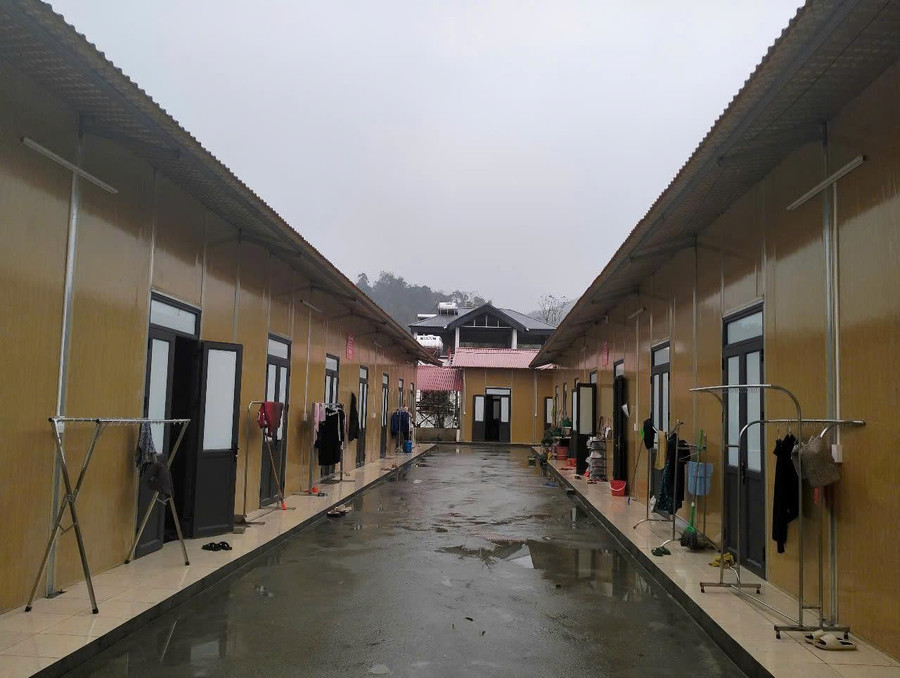
Mr. Pham Quoc Bao - Principal of Nam Cha Primary Boarding School for Ethnic Minorities, Muong Mo Commune, informed: "Many young teachers after a few years of working have to ask to be transferred because of the difficult living conditions. Each person leaving is another hole in the team."
Yen Lo Primary Boarding School for Ethnic Minorities is located in the remote commune of Thien Hoa, Lang Son province. According to Mr. Lam Van Van - Vice Principal of Yen Lo Primary Boarding School for Ethnic Minorities, the official residence at the main school has been used for more than 20 years, with 5 rooms, and no enclosed auxiliary works.
Due to limited conditions, 12 teachers and staff have to share small rooms. At Khuoi Chang school, although there are 7 teachers, there is no office. Traveling between the school and the remote residence, having to cross the river, makes the way to school difficult for teachers.
The dormitory for teachers at the main campus of Tra Leng 1 Primary Boarding School for Ethnic Minorities (Tra Leng Commune, Da Nang City) currently has 4 rooms, but in reality, there are nearly 20 teachers staying.
Due to the lack of accommodation, the school had to make use of every available space. Some rooms had three or four people sharing them; some smaller rooms had only two people; some teachers even had to sleep in the library. The school board was no exception - the Principal and Vice Principal had to use their offices as overnight accommodation.
Teachers who live with their families or have small children are forced to rent houses near the school. Mr. Le Huy Phuong - Principal of the school said that currently, the school has 3 teachers who have to rent houses outside at a cost of 1 to 1.5 million VND per month.
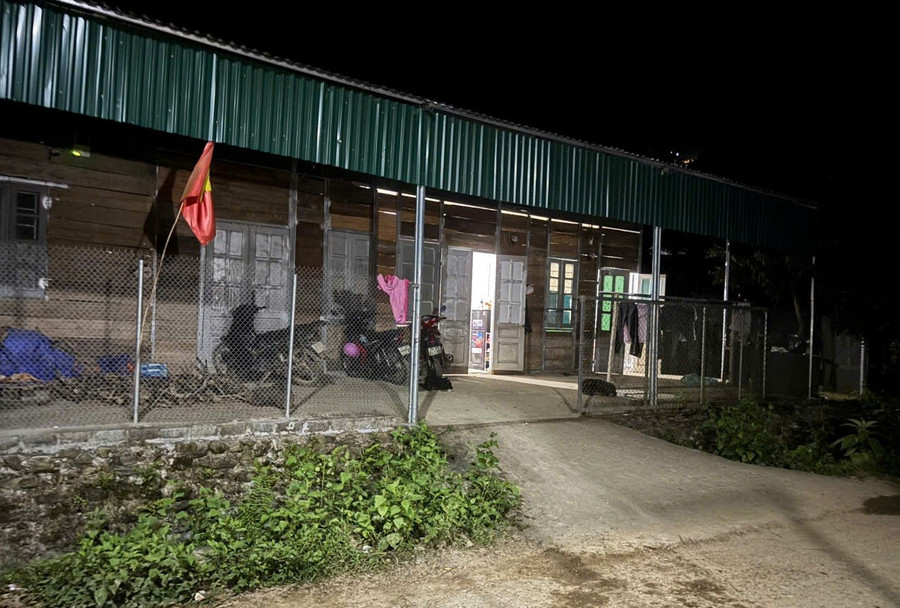
Union shelter keeps teachers in difficult areas
For a long time, many teachers of Binh Trung Secondary and High School (Nghia Ta commune, Thai Nguyen) have had to live in a seriously degraded wooden house, which is not only unsafe but also greatly affects the quality of life.
Faced with that situation, in 2023, the Trade Union of Universities supported the construction of a three-room house for 9 teachers. Then, in November 2024, Bac Kan Provincial Police (now Thai Nguyen Provincial Police) continued to support the construction of 2 public housing areas including 16 closed rooms with full living facilities, a communal kitchen and a modern restroom.
“This timely support not only helps the school overcome difficulties in facilities, but is also a great source of encouragement for the teaching staff here. Thanks to that, the teachers are more confident and committed to their profession and students,” Mr. Vu Duc Man - Principal of the school, said emotionally.
Similarly, Hien Da High School (Hung Viet Commune, Phu Tho) currently has nearly 20 staff and teachers who regularly travel 30-40km each day to get to school. Under normal conditions, traveling is already difficult. Especially during rainy and flood days or exam season, the situation becomes even more difficult.
In 2024, Phong Chau Bridge - a vital traffic route connecting neighboring areas - was broken due to the impact of Typhoon Yagi, making travel extremely difficult and dangerous. Many teachers were forced to take a detour of dozens of kilometers or rent temporary accommodation near the school in poor conditions, not ensuring their living conditions.
Faced with this situation, the Vietnam Education Trade Union and other units supported the construction of a new, solid public housing complex, ensuring stable living conditions for teachers at Hien Da High School with an estimated cost of about 828 million VND. In addition, auxiliary items such as yards, walkways, fences, etc. are expected to cost an additional 200 million VND, bringing the total investment to 1 billion VND.
According to Mr. Nguyen Ngoc An - Chairman of the Vietnam Education Trade Union, supporting the construction of public housing is not only to overcome the consequences of natural disasters, but also to demonstrate the sense of responsibility, gratitude and companionship of the trade union organization towards the team of teachers who are working day and night in schools and classrooms in difficult areas.
Also in Phu Tho province, over the past years, the Trade Union Shelter Fund of the Provincial Labor Federation has supported many schools in the area to build teachers' public housing. According to Mr. Nguyen Minh Tien - Chairman of the Trade Union of Party agencies of Phu Tho province, former Chairman of the Trade Union of Education sector of Phu Tho province, building teachers' public housing mainly depends on funding and mobilizing resources of the school.
“Currently, teachers’ lives and incomes are still difficult, so it is necessary to have public housing for teachers who live far away. However, this depends on the budget of each school; not all schools can build public housing. The industry union has asked the school unions to review the lives of teachers, make a list of those in difficult circumstances, and propose that the industry union provide support,” said Mr. Tien.
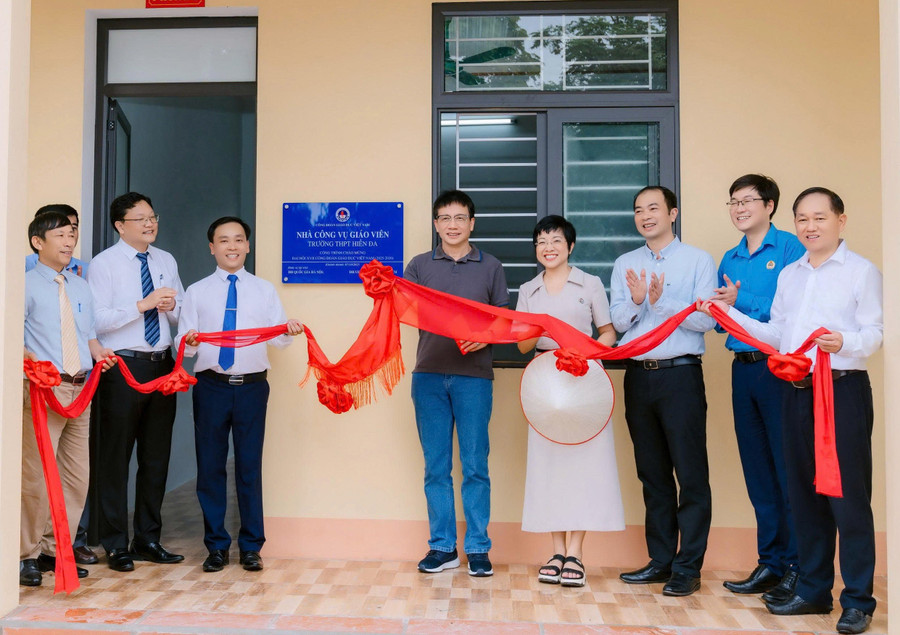
Difficult to solve completely
Building enough and renovating public housing is an urgent task. However, to effectively implement this policy, there needs to be close coordination between the central and local governments, with strong support from the state budget and the mobilization of social resources.
For example, Lai Chau, with its rugged terrain and difficult transportation, especially during the rainy season, makes transporting materials to the highlands costly, causing the cost of building public housing to increase. Meanwhile, investment capital for education is limited, mostly focused on building classrooms and main teaching facilities.
The socialization of education in the highlands is still weak and has not attracted many social resources to participate. Many support projects from the Central Government and non-governmental organizations only stop at investing in classrooms and equipment, and do not have a separate category for teachers' public housing.
Or in Cao Bang province, reality shows that to meet the demand for more than 600 public housing for teachers, a budget of more than 288 billion VND is needed. This is a large number compared to the self-balancing capacity of the local budget.
At Tra Van Primary and Secondary School for Ethnic Minorities (Tra Van Commune, Da Nang City), although 38 teachers are in need, the official housing area only has 6 rooms on level 4. Each room can accommodate a maximum of 4 people. Among them, a teacher who is raising a small child is given priority for a private room, so only 20 teachers have accommodation in the school's dormitory.
To solve the problem of accommodation for teachers, the school divided the old dining room of the former elementary school into 3 rooms. In addition, the school also took advantage of 1 student room in the dormitory to arrange for 3 teachers and a medical staff to stay and work at night. Although the living conditions of teachers are cramped and lack amenities, the school has not yet found a solution to overcome it.
Tra Leng 1 Primary School has been approved for a project to build a staff house for teachers with 8 rooms. The project is expected to cost more than 1 billion VND, with funding from the National Target Program and additional support from the local budget.
In addition, from socialized sources mobilized by clubs and volunteer groups, 7/11 satellite schools of the school have had solidly built public housing. For the remaining 4 schools, due to the lack of roads, people only travel by forest trails, so they cannot transport materials to build classrooms and teachers' accommodation.
“The lack of public housing has a huge impact on the lives and psychology of teachers. Without a stable place to live, teachers often have to move or live temporarily in unsafe conditions, which directly affects their health, spirit and ability to concentrate on work.” - Mr. Be Minh Duc - Deputy Head of the National Assembly Delegation of Cao Bang Province
Source: https://giaoducthoidai.vn/linh-hoat-giai-phap-thuc-hien-kien-co-hoa-nha-cong-vu-cho-giao-vien-post754346.html


![[Photo] National Assembly Chairman Tran Thanh Man received a delegation of the Social Democratic Party of Germany](https://vphoto.vietnam.vn/thumb/1200x675/vietnam/resource/IMAGE/2025/10/28/1761652150406_ndo_br_cover-3345-jpg.webp)

![[Photo] Draft documents of the 14th Party Congress reach people at the Commune Cultural Post Offices](https://vphoto.vietnam.vn/thumb/1200x675/vietnam/resource/IMAGE/2025/10/28/1761642182616_du-thao-tai-tinh-hung-yen-4070-5235-jpg.webp)
![[Photo] Flooding on the right side of the gate, entrance to Hue Citadel](https://vphoto.vietnam.vn/thumb/1200x675/vietnam/resource/IMAGE/2025/10/28/1761660788143_ndo_br_gen-h-z7165069467254-74c71c36d0cb396744b678cec80552f0-2-jpg.webp)


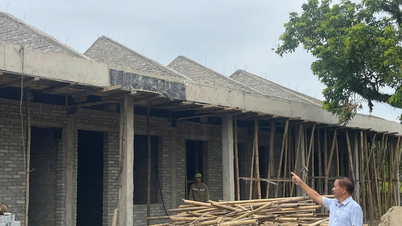
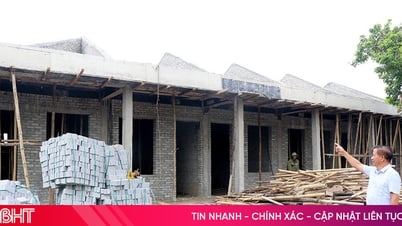

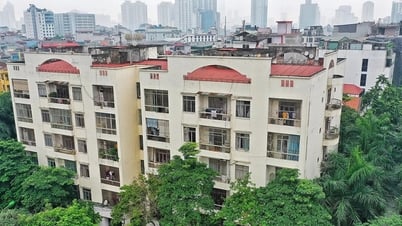

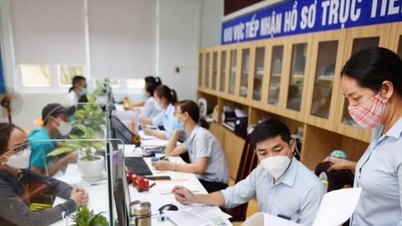

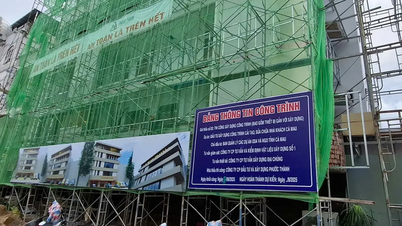

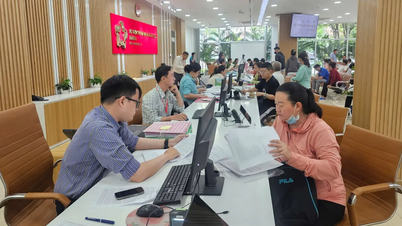
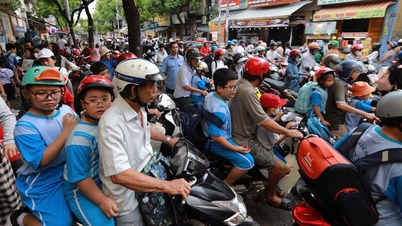

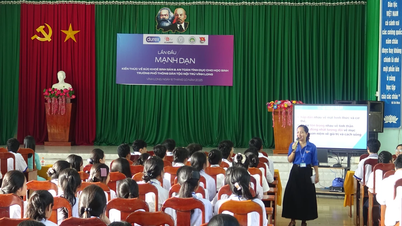
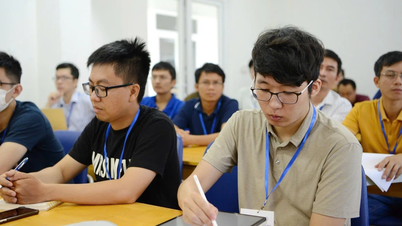











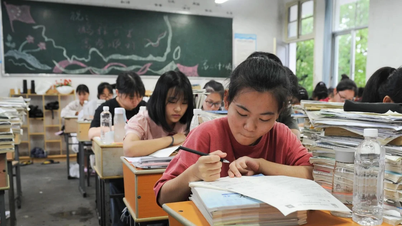

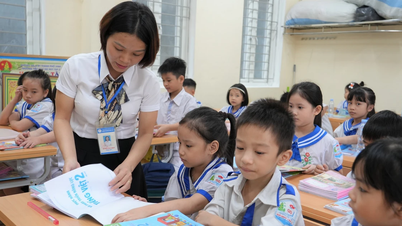
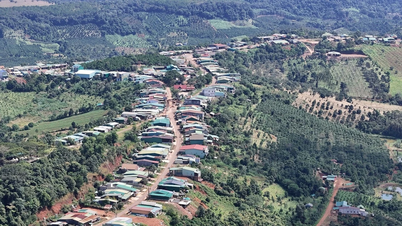
![[Photo] President Luong Cuong attends the 80th Anniversary of the Traditional Day of the Armed Forces of Military Region 3](https://vphoto.vietnam.vn/thumb/1200x675/vietnam/resource/IMAGE/2025/10/28/1761635584312_ndo_br_1-jpg.webp)































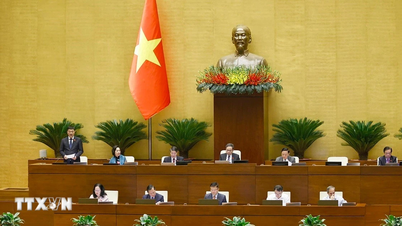

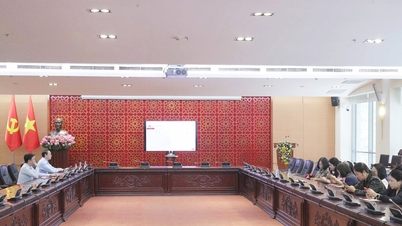




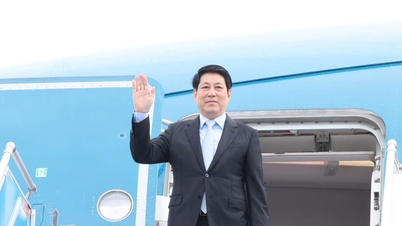





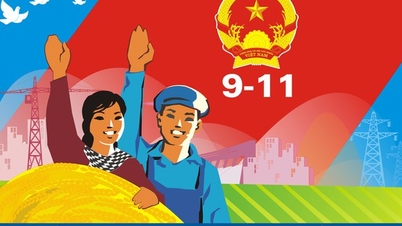



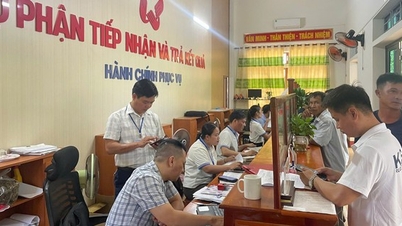

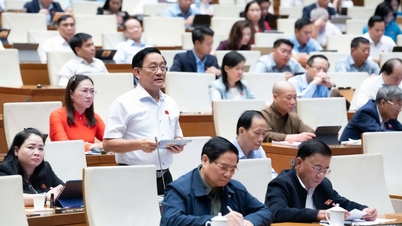

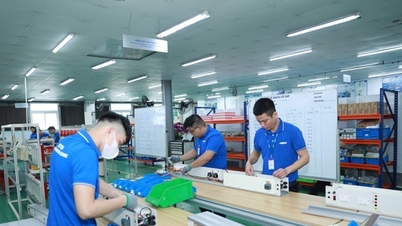


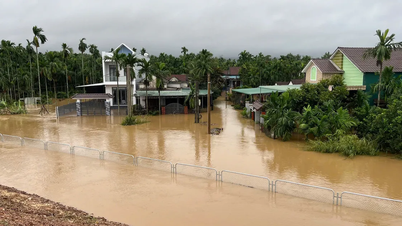

















Comment (0)